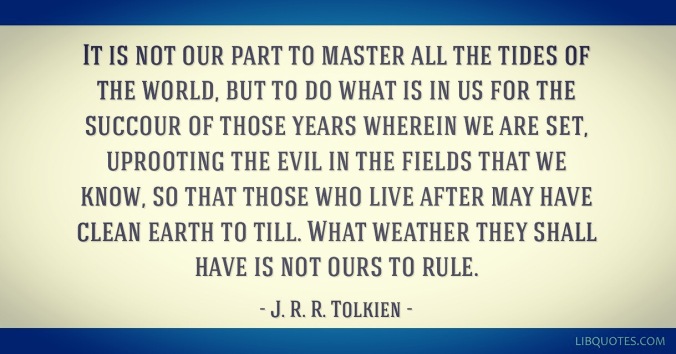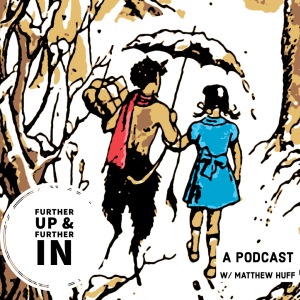
Words from the South…

“The lights drifted farther away the faster he ran and his feet moved numbly as if they carried him nowhere. The tide of darkness seemed to sweep him back to her, postponing from moment to moment his entry into the world of guilt and sorrow.”
-Flannery O’Connor, “Everything That Rises Must Converge”
#currentlyreading
For My Dad…
In honor of my dad’s birthday today, here is a poem from my first book, The Cardinal Turns the Corner, titled “Dad.” Happy birthday, Dad!
“Dad”
On the mountains at the farthest border of the world,
snow-capped and calling,
I felt my way to the thin line of the edge
and looked down into outer space
where I could see the winds of stars fall asleep
below my scarlet knuckles
as the northern lights, with their tin flame of foil fire,
green and white diamond, filmed the midnight sky.
They told stories like my father,
full of heroes and the beauties they fought for,
as every scene of laughter and of sorrow,
played at once along the measures of their gleaming.
Then I balled a few rags of snow in my grasp
and clenched them hard enough for the cold to slide
into my chest and crack my pounding heart alive
as I rose to my feet and steadied my shaking lungs.
I remember those tales well,
my father sitting by my bedside, holding
oceans and sailing ships with the strength of
his love for me.
And I would follow him anywhere,
through the forestry of childhood,
keeping close to his heels as he
showed me where to go,
well into the iron winters of adulthood
as my stride slowly grew stronger, and
he taught me how to breathe
the mountain air of becoming a father.
For now, as I stand at the peak of this universe,
filled with ice and the sweep of shooting stars,
I turn and see the faces of my own children and my beautiful wife,
looking to me with the smiles of home,
and I know it is time to tell my own stories,
to hold their hands and lead them onward
as they keep close to my heels, and I show them
where to go.
New Podcast

Perhaps no writer in the 20th century was better capable of sharing the “shiver of wonder” and the glorious taste of the gospel than C.S. Lewis. Throughout his life, Lewis reveled in the truth and beauty of God, passionately chasing the eternal ache and longing he felt for the joy and ultimate satisfaction found only in Jesus Christ.
Taking the journey one chapter at a time, this new podcast delves into the deeper magic of Lewis’s famous Narnia stories, inviting you to go further up and further in to savor the glimpses of Jesus that lie just on the other side of the wardrobe.
You can listen to Episode 1 – Introduction right here:
What Sort of God Sends People to Hell?!
 One of the most common arguments (though often fired off as an accusation) that Christians hear against the notion of a good and loving God is that such a God, were he truly good and loving, would not send good and loving people to a realm of eternal punishment. How could such a kind and gracious God possibly damn someone to hell? Doesn’t he love everyone?
One of the most common arguments (though often fired off as an accusation) that Christians hear against the notion of a good and loving God is that such a God, were he truly good and loving, would not send good and loving people to a realm of eternal punishment. How could such a kind and gracious God possibly damn someone to hell? Doesn’t he love everyone?
And so the line of interrogation goes, scores of skeptics placing God in the dock, wagging their finger at such a ferociously tyrannical deity who demands our affection or else. I mean, who does God think He is anyway? Sure, Stalin ought to be doomed to hell, but not Stephanie. God should certainly punish Hitler, but not Henry.
While much has been said on the subject – books upon books from each side, debates and Facebook tirades ad infinitum – a particular series of events in Genesis provides a helpful center for the compass. In Genesis 12-17 God reveals Himself to Abraham and calls him, famously, to become the father of many generations. Father Abraham had many sons, and many sons had Father Abraham…
In Genesis 18, the LORD appears to Abraham (likely one of many Christophanies) accompanied by two angels and declares His intentions to destroy the wicked city of Sodom. What follows is the remarkable discourse in which Abraham bargains with the LORD to spare the city for the sake of 50 righteous people, then 45, 40, 30, 20, and finally 10. Notice, however, Abraham’s original complaint:
“Then Abraham drew near and said, ‘Will you indeed sweep away the righteous with the wicked? Suppose there are fifty righteous within the city. Will you then sweep away the place and not spare it for the fifty righteous who are in it? Far be it from you to do such a thing, to put the righteous to death with the wicked, so that the righteous fare as the wicked! Far be it from you! Shall not the Judge of all the earth do what is just?'” (Gen. 18:23-25, ESV, emphasis added)
Though Abraham’s trust in the LORD and his intimate relationship with Him has been established (Gen. 15:6, 18:22-23), he still takes it upon himself in interceding for Sodom to question God’s intentions. How could God “sweep away the righteous with the wicked”? How could He allow the “righteous [to] fare as the wicked”? In essence, how could God’s punishment for the bad include the good? How could a loving God allow damnation to come to the innocent? Shall not the Judge do what is just? Shall not the loving God (I John 4:8) do what is loving?
We might very well be tempted to respond like Abraham did: “Far be it from You!”
Yet, God’s response to Abraham is revealing. He yields. He accepts Abraham’s plea to spare 50 righteous from the city, and the story does not stop there. Abraham progressively whittles the number from 50 down to 10, hoping to maintain God’s good favor in sparing the righteous. And God continues to accept. What is the point?
God’s lesson for Abraham – and for us – is the same as His lesson throughout Scripture:
- There is none righteous, no, not one (Rom. 3:23).
- All have sinned and fall short of the glory of God (Rom. 3:23).
- If God should mark iniquities, who could stand? (Ps. 130:3).
- We are dead in our trespasses (Eph. 2:1).
- Death has spread to all men because all have sinned (Rom. 5:12).
- All we like sheep have gone astray; we have turned – every one – to his own way (Is. 53:6).
The problem with Abraham’s petition for the LORD to spare the righteous is not in the sincerity of his prayer, or in his trusting in the LORD to do what is right, but strictly in his definition of a righteous man. Apart from God, there is no such thing as a righteous person to be spared. While God’s agreement with Abraham to save the righteous is certain – He will save a remnant from the corrupt city – it will not be because they are righteous. They will become righteous because God has saved them.
We see this played out in the following chapter. In Genesis 19 God’s angels enter Sodom to save Lot and his family from the destruction that is sure to come:
“As morning dawned, the angels urged Lot, saying, ‘Up! Take your wife and your two daughters who are here, lest you be swept away in the punishment of the city.’ But he lingered. So the men seized him and his wife and his two daughters by the hand, the LORD being merciful to him, and they brought him out and set him outside the city.” (Gen. 19:15-16, ESV, emphasis added)
This is the cornerstone of God’s work in salvation. It is not God’s offering to save good people so that they may become great people, nor is it God’s accepting of our good merits and our noble desires to be saved. God resurrects the dead (Eph. 2). God causes light to shine out of darkness (II Cor. 4). God shows His love for us in that while we were yet sinners, wholeheartedly obsessed with our sinfulness and in utter rebellion toward God, Christ died for us (Rom. 5:8).
God did not save Lot because he desired to be saved. Like all of us before we are saved by grace, Lot lingered in the city. He longed to remain in wickedness, not to escape it. He desired Sodom, even above the pressing urgency of angels. Lot’s salvation, and the salvation of his house, came not by his drawing near to God but by the seizing grip of God’s mercy. God came down to save us; He did not accept us as we climbed to Him. All of the initiative is on God’s side. He must seize us, for without it, we will forever linger.
This story is not one of an arbitrary, capricious God, smiting away with the Louisville slugger of holiness, but one of judgment and mercy, dual characteristics of the Almighty God. Abraham was right: the Judge of all the earth shall do what is just. Sin and rebellion shall be punished. Yet, Abraham also saw the merciful Father, extending a gracious hand to save Lot and his family when they had done nothing to deserve or desire it:
“So it was that, when God destroyed the cities of the valley, God remembered Abraham and sent Lot out of the midst of the overthrow when he overthrew the cities in which Lot had lived.” (Gen. 19:29, ESV, emphasis added)
God justly destroyed the wickedness of Sodom. God mercifully spared a remnant, not for their righteousness but for His own. God remembered Abraham’s intercessory prayer and set Lot apart from the city of doom.
The question is not how a good and loving God can punish good people; there are none apart from His grace. The question is how a righteous and holy God could save the Lots who linger.
May we rejoice and be glad, filled with the truth that He “has delivered us from the domain of darkness and transferred us to the kingdom of his beloved Son, in whom we have redemption, the forgiveness of sins” (Col. 1:13-14).
Empires of Dirt by Douglas Wilson
 Empires of Dirt: Secularism, Radical Islam, and the Mere Christendom Alternative by Douglas Wilson
Empires of Dirt: Secularism, Radical Islam, and the Mere Christendom Alternative by Douglas Wilson
My rating: 5 of 5 stars
I read another reviewer who labeled this perhaps the most important book Wilson has written, and I am more than happy to throw my support behind such high praise.
I am an ardent fan of Wilson’s and have read several of his books; Empires of Dirt, however, is one of the greatest, timeliest, and most extraordinary of his expressions to date. His grasp of America’s present ills is sure, and his biblical, postmillennial, optimistic vision of mere Christendom a delicious remedy.
Wilson argues for the engagement of all Christians in reclaiming the world for King Jesus, affirming that, as I once heard Wilson quip, if Christ is not Lord of all, then He is not Lord at all.
This book is simply magnificent, though if you are new to Wilson’s style, I would recommend you start with Angels in the Architecture or Rules for Reformers first.
Poem Audio #5 – “Yard Sale”
Poem Audio #4 – “School Poems”
Here is my discussion of “School Poems” from The Cardinal Turns the Corner.
“School Poems”
The air in study hall was thick with the smoke of pencils,
Scribbling to find fire on the page, ten teenagers
Looking for love in the smile their words might make.
Over in the library, some have rolled their sleeves,
Bent over a row of screens,
Their hurried breaths gyrating the pinwheels of their poems
As their fingertips clicked like cleats on the pavement of their laptops,
Letters dripping on documents,
A thousand rain drops on an old tin roof.
I walked past the boy on the steps with a halo of reverb
Plugged in from ear to ear, connected to a phone synced to his heart,
Drumming his palms against his knees like his life
Had been lived only for this moment, the wild abandon
Of one who’d learned to walk the plank
As the pirates of passion loomed behind him with their thick beards
And blades sharpened
As if to say, “Rock this one out or you’ll sleep in the ocean.”
The girl in the courtyard crooked one leg behind the other,
Curling her fingers around her phone in the cold
Like she knew the next message he sent would make her warm.
So she bubbled her poetry in blue, mailed it on the airwaves, and waited for his ellipses,
Three dots in Morse before three words she longed to read.
Down the hall, the kindergarteners knelt outside their classroom,
Upturning waxy bags of crayon and a dozen safety scissors,
Peeling the ghosts of Elmer’s glue from their palms
As they told their parents they loved them
With a red construction heart and a firm crease in the center,
A greater declaration of devotion than any sonnet could ever sing.
So I kept walking briskly in the air of this century
Where people still write poetry, breaking pieces of their body
Like bread for summer swans
And pressing them deep into a dozen syllables,
The friction of pounding feet and chattering teeth
As they toss their own words into the rushing waters of time.
Poem Audio #3 – “Space” / “Two Boys”

Two more poems: “Space” and “Two Boys.” The full text for each poem is included below the audio player. Enjoy!
“Space”
I read the other day
That the human body can briefly survive
The hard vacuum of space unprotected,
And I’ve never been more afraid than I was then,
Sitting quietly at a table, drinking coffee.
I dreamed you and I were astronauts,
Breathing into screens, fingers in padded gloves,
Drifting in the black, until suddenly,
You peeled your suit straight off your arms
And pushed into the dark.
I wanted to reach you on the radio,
Try every channel, all my digital rhetoric,
Just to have you back,
But you slowly grew smaller,
A white star fading from the frame
Until you disappeared.
I wanted more time to hold you in orbit,
To see the constellations
Reflecting in your eyes,
To prove I could protect you
From the cold of this wide universe.
But I was left there, suspended,
Playing over and over in my mind
The singular curve of your hand
As your fingers unwound themselves from mine
And you said you needed space.
“Two Boys”
Every man is twice a boy –
once, through the swinging years of wildness,
two barrels of bone and breath
in his fiery chest,
hands on the hot road,
toothless summers of
grapes and tall grass,
the braille of bumps on the high dive –
and again, in the final minute,
when his breath stays in his mouth,
and his fingers itch
for his mother
Poem Audio #2 – “Little Icarus” / “Braces”

This week’s Poem Audio features two poems on childhood: “Little Icarus” and a new poem “Braces”. The full text for each poem can be found below the audio player. Enjoy!
“Little Icarus”
Little Icarus stood by the wood chips.
He was twelve when both his wings broke, tangled up,
Trying to tear through the fabric of his polo,
Caught beneath the floorboards of his shoulder blades
As his cheeks flushed with shame.
He wore a slipshod buzz cut and chubby jowls that
Framed his braces and the crooked grin they fenced in,
Standing alone as yesterday’s rain lay simmering on the blacktop.
A blur of children sprinted past him, laughing,
And he buried his dry tongue beneath the dirt in his throat,
The stiffness of death in the mouth of a boy
Who never knew what to say.
Not a word about the jungles he’d seen in gym,
The knotted rope of humiliation and the sting of the lash
As the rich kid rat-tailed his back in the locker room
And all the cool boys snickered behind their elbows,
The cute girls giggling later over sandwiches.
But don’t you fear, little man,
For I have brought an army of book nerds,
Dreamers and choir singers,
Carrying their lisps and scars in rucksacks,
Glasses, buck teeth, and southern accents,
The boys who cry at movies and the girls who still have nightmares,
Walking our bikes over to invite you to our treehouse
Where white-out is outlawed
And your freckles are the confetti of God
Like He cut up the birthday cake of the sun just for you.
And together there, we’ll patch your feathers
And tell a couple of stories
Before we lean our heads back against the beams of our home,
Look up at the stars through the crack in our creaky roof,
And slowly drift to sleep.
“Braces”
I am thirteen years old,
And I hate the small bike chain glued to my teeth
That keeps me from the perfect kiss
I have planned for six months.
My smile is magnetic, tangled in wire,
My hello smothered in sparks,
My words, nicked and flickering in my mouth,
Fly in a hundred pinprick flashes, embers rising
From the fire in my chest.
Perhaps I can fence my garbled mouth
With the fan of my hand, breathe to you
In smoke signals, or tell you how I feel
Through the notes we write, unhindered
By chain-link and spotted iron.
Or maybe you will read my mind,
Your eyes pressed close against the glass
Of the space between us, peering beyond
My mouthful of radio, torn antenna,
Stainless steel.
But though I have worn this metal for many months,
Turning over the flavor of tin in my tongue
Behind the hard-wired cable in my mouth,
I was thirteen years old when you let me lean close
And close my eyes –
The first time I have ever been shocked.

